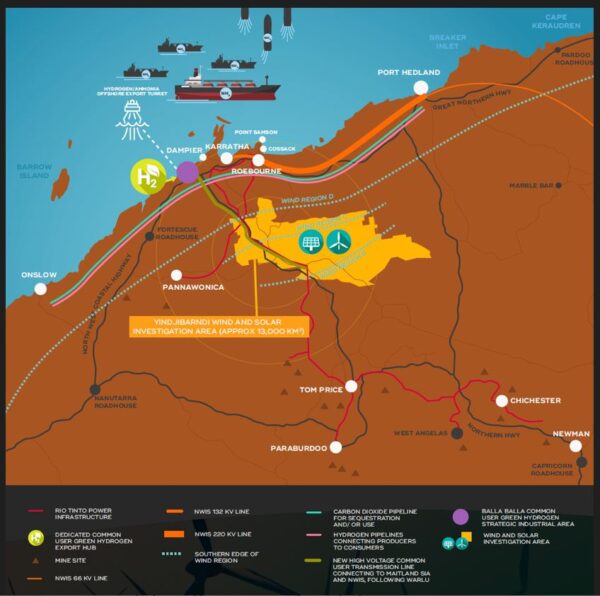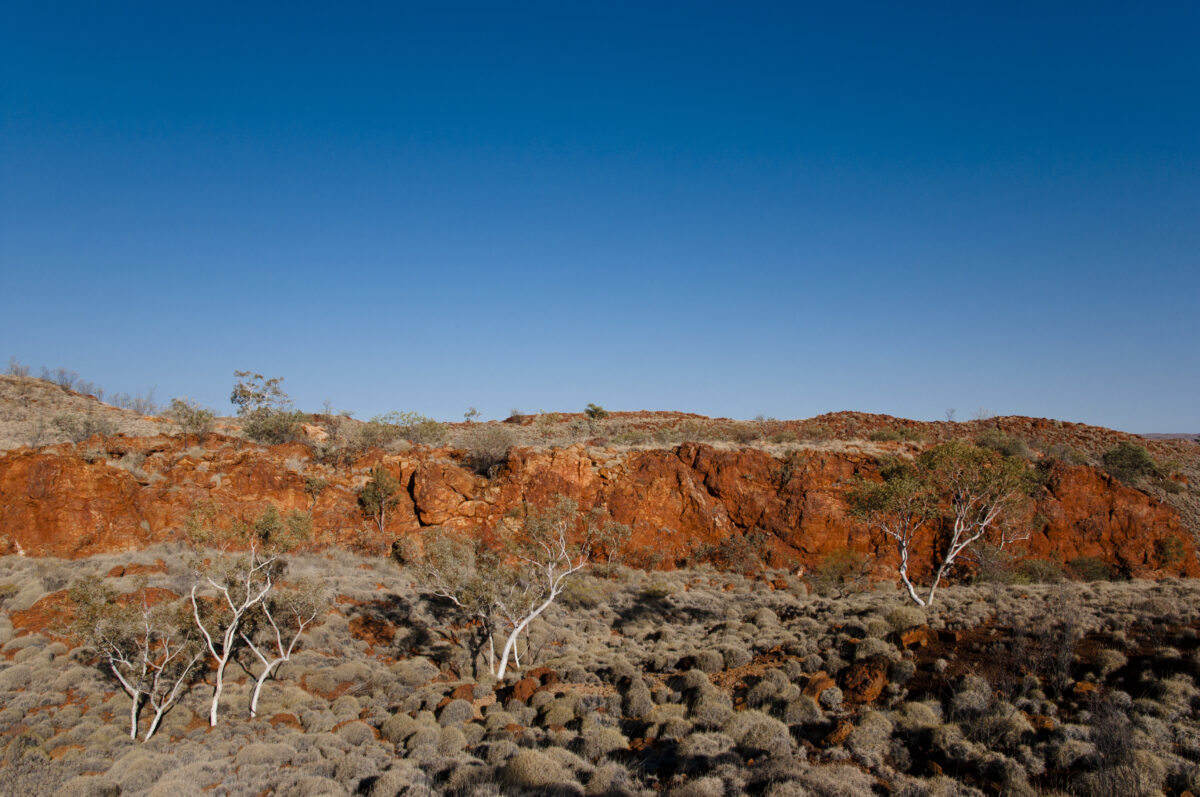The Yindjibarndi Aboriginal Corporation (YAC) announced it will partner with developer ACEN to develop, own, and operate large-scale renewables projects targeting major industrial energy users in Western Australia’s Pilbara region.
As part of the initiative, the YAC and ACEN have formed the Yindjibarndi Energy Corporation (YEC) to progress the development of large-scale renewable energy projects on an area of Yindjibarndi country covering 13,000 square kilometres.
Plans include an initial target of 750 MW of combined wind, solar, and battery storage to be in construction within the next few years, representing an investment of more than $1 billion (USD 680 million). A second stage will target a further 2 GW to 3 GW of wind, solar, and battery storage.
In a statement, YEC said technical studies have already been initiated to progress investigation, permitting, connection, and development activities.
The partnership agreement between the YAC and ACEN has been framed to ensure Yindjibarndi approval of all proposed project sites, Yindjibarndi equity of 25% to 50% in all projects, preferred contracting for Yindjibarndi-owned businesses, and training and employment opportunities for Yindjibarndi people.
YAC Chief Executive Officer (CEO) Michael Woodley said the initiative means the Yindjibarndi people can actively participate in Australia’s renewable energy transition in a significant and sustainable way.
“We know that our country is well located for renewable energy development, so we made the decision early to lead,” he said. “The agreement with ACEN … provides long-term economic benefits to our community, whilst also ensuring that we can protect and preserve all areas within Yindjibarndi Ngurra which are of cultural, spiritual, and environmental significance to us.”
Clean Energy Council CEO Kane Thornton said the agreement between the Yindjibarndi people and ACEN sets a new benchmark for meaningful participation by indigenous Australians in the country’s transition to a clean energy future.
“It represents the kind of leadership and innovation that is needed to drive Australia’s equitable transition to becoming a renewable energy powerhouse,” he said.

ACEN International CEO Patrice Clausse said his company was grateful for the trust the Yindjibarndi community has put in it to explore development opportunities on their country.
“The Pilbara region is home to some of the largest industrial energy users globally, many of which have expressed their desire to participate in a transition to a carbon neutral future,” he said, adding that “commercial discussions are in motion and we’re currently having encouraging conversations with potential offtake customers to purchase the renewable energy.”
ACEN, which is owned by the Philippines-based Ayala Group, is the developer behind some of Australia’s biggest renewables projects. The company said its Australian platform has more than 800 MW capacity in construction and operations, and more than 6 GW capacity to be in construction in the next four years.
ACEN’s Australian projects include the New England Solar Farm where the 400 MW first stage went live in March, and the 400 MW Stubbo Solar Farm and associated 200 MW/200 MWh battery energy storage project.
The company’s Australian projects form part of its ambition to grow its renewable portfolio in the Asia Pacific region to 20 GW by 2030.
This content is protected by copyright and may not be reused. If you want to cooperate with us and would like to reuse some of our content, please contact: editors@pv-magazine.com.









3 comments
By submitting this form you agree to pv magazine using your data for the purposes of publishing your comment.
Your personal data will only be disclosed or otherwise transmitted to third parties for the purposes of spam filtering or if this is necessary for technical maintenance of the website. Any other transfer to third parties will not take place unless this is justified on the basis of applicable data protection regulations or if pv magazine is legally obliged to do so.
You may revoke this consent at any time with effect for the future, in which case your personal data will be deleted immediately. Otherwise, your data will be deleted if pv magazine has processed your request or the purpose of data storage is fulfilled.
Further information on data privacy can be found in our Data Protection Policy.